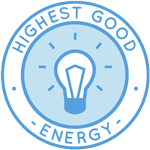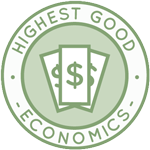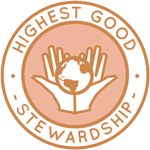Ecologically Addressing Housing – One Community Weekly Progress Update #359
Ecologically addressing housing is a necessary step to achieving global sustainability. So many solutions for this already exist. If we can make them easy enough, affordable enough, and demonstrate them as attractive enough, these solutions will spread on their own and get closer and close to becoming the new normal. Open sourcing and free sharing sustainable, DIY-replicable, teacher/demonstration hubs build with the various methodologies is how One Community is contributing towards the mission of ecologically addressing housing.
- Here’s our project overview
- Here’s our world-change methodology
- Here’s how this becomes self-replicating
- Here’s how we are open source and free-sharing all the do-it-yourself designs
OUR MAIN OPEN SOURCE HUBS
Click on each icon to be taken to the corresponding Highest Good hub page.
One Community’s physical location will forward this movement as the first of many self-replicating teacher/demonstration communities, villages, and cities to be built around the world. This is the February 9th, 2020 edition (#359) of our weekly progress update detailing our team’s development and accomplishments towards ecologically addressing housing:
Ecologically Addressing Housing
One Community Progress Update #359
DONATE | COLLABORATE | HELP WITH LARGE-SCALE FUNDING
CLICK HERE IF YOU’D LIKE TO RECEIVE AN EMAIL EACH WEEK WHEN WE RELEASE A NEW UPDATE
YOU CAN ALSO JOIN US THROUGH SOCIAL MEDIA
ONE COMMUNITY WEEKLY UPDATE DETAILS
HIGHEST GOOD HOUSING PROGRESS
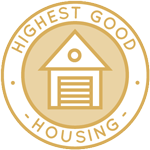 One Community is ecologically addressing housing through Highest Good housing that is artistic and beautiful, more affordable, more space efficient, lasts longer, DIY buildable, and constructed with healthy and sustainable materials:
One Community is ecologically addressing housing through Highest Good housing that is artistic and beautiful, more affordable, more space efficient, lasts longer, DIY buildable, and constructed with healthy and sustainable materials:
- Learn about: Our Upcoming Crowdfunding Campaign
- Learn about the different village models: 7 Sustainable Village Models
- Visit the open source portals for the first two: Earthbag Village OS Hub | Straw Bale Village OS Hub
This week the core team continued with what we hope will be the 2nd-to-final review of the Murphy bed instructions. This week’s focus was a detailed review and identifying errors and suggesting fixes for the bed, swivel, and overhead lighting components. You can see some of this work in progress below for ecologically addressing housing.
The core team working with Oluyomi “Yomi” Sanyaolu (Technical Writer and Researcher) (completing his 16th week with the team) worked together this week to finish review and edits to the Wind Energy Setup and Maintenance and Hydro Energy Setup and Maintenance tutorials. Oluyomi also made adjustments to the wind and hydropower cost analysis component. The budget for batteries used in the wind system was initially $153 however, after further research, $300 ” $1,000 is needed dependent on whether it is a small or large-sized wind turbine. Minor alterations to the calculations for cost per kW for the hydro power cost analysis made the results more consistent.

Finished Review and Edits to Wind Energy and Hydro Energy Setup and Maintenance Tutorials – Click for Wind Page
Dean Scholz (Architectural Designer) also continued helping with the Earthbag Village (Pod 1) 4-dome cluster designs. This week was week #179 of Dean’s work and the focus this week was lowering the rest of the walls to match the lowered window for the seating area. You can see pictures of these updates below demonstrating contributions towards the mission of ecologically addressing housing.
DUPLICABLE CITY CENTER PROGRESS
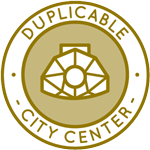 One Community is ecologically addressing housing through a Duplicable and Sustainable City Center that is LEED Platinum certified/Sustainable, can feed 200 people at a time, provide laundry for over 300 people, is beautiful, spacious, and saves resources, money, and space:
One Community is ecologically addressing housing through a Duplicable and Sustainable City Center that is LEED Platinum certified/Sustainable, can feed 200 people at a time, provide laundry for over 300 people, is beautiful, spacious, and saves resources, money, and space:
- Learn about this building and it’s function: Duplicable City Center Open Source Hub
This week Ron Huang (Mechanical Engineer) continued with his 39th week developing and refining the Energy Modeling tutorial needed to achieve our LEED Platinum certification. This week Ron continued balancing the heating and cooling to meet ASHRAE criteria with the updated occupancy details. You can see some of this work here towards ecologically addressing housing and we’d say we’re now about 94% complete with the City Center energy analysis component.

Continued Balancing the Heating and Cooling to Meet ASHRAE Criteria – Click for Duplicable City Center Heating and Cooling Page
HIGHEST GOOD FOOD PROGRESS
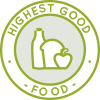 One Community is ecologically addressing housing through Highest Good food that is more diverse, more nutritious, locally grown and sustainable, and part of our open source botanical garden model to support and share bio-diversity:
One Community is ecologically addressing housing through Highest Good food that is more diverse, more nutritious, locally grown and sustainable, and part of our open source botanical garden model to support and share bio-diversity:
- Learn about the structures: Hoop House Hub | Aquapini & Walipini Open Source Hub
- See what we’ll be growing: Gardens & Hoop Houses | Large-scale Structures | Food Forest | TA
This week the core team continued working on our behind-the-scenes chicken Google Doc. This week we researched Leghorn chickens and decided against them. Then we researched Plymouth Rock Chickens, ones we’ll be going with because they are another good dual purpose hen, friendly, healthy, and cold hardy. We also edited and added more details to the Why Chickens, Chicken Raising Details, and Other Chicken Needs sections. You can see some of this work here towards ecologically addressing housing.
And the core team continued developing the open source permaculture design content. This week’s focus was continued development of Step 2 of the Permaculture Case Study section, “Assess Site Through Observation And Research.” This week’s focus was finishing the base map and writing more content for the and food sections. You can see some of this behind-the-scenes work here towards ecologically addressing housing.
Mohammad Almuzaial (Civil and Construction Engineer) also continued with his 11th week helping with the Aquapini/Walipini civil engineering details. This week he changed the pond location to the north west side, added floor drains to the structures, added all the structure planted areas in the water consumption calculations, calculated harvested rainwater and required catchment land, added the cool-air inlet to the rest of the structures, and created the first draft of the rainwater harvesting calculations spreadsheet. You can see some of this work-in-progress here towards ecologically addressing housing and we’d say this brings this part of this component to 86% complete.
Ali Ghahremannezhad (Mechanical Engineer) additionally continued with his 10th week as a member of the team and working on the climate batteries for the Aquapini/Walipini structures. This week Ali worked on boundary condition evaluation through a 2D transient simulation for aquapini and walipinis. All design parameters were changed to be based on a site location in West Jordan, Utah – a place with the closest climate conditions we could find to our proposed location.
The variations of the outside temperature was evaluated throughout the year, in January, and for a day in January. Effects of wind speed variations was also added to account for the convection heat transfer coefficient caused by the outside wind speed. The transient simulation results were then explored. You can see some of this behind-the-scenes work here for ecologically addressing housing.
HIGHEST GOOD EDUCATION PROGRESS
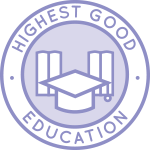 One Community is ecologically addressing housing through Highest Good education that is for all ages, applicable in any environment, adaptable to individual needs, far exceeds traditional education standards, and more fun for both the teachers and the students. This component of One Community is about 95% complete with only the Open Source School Licensing and Ultimate Classroom construction and assembly details remaining to be finished.
One Community is ecologically addressing housing through Highest Good education that is for all ages, applicable in any environment, adaptable to individual needs, far exceeds traditional education standards, and more fun for both the teachers and the students. This component of One Community is about 95% complete with only the Open Source School Licensing and Ultimate Classroom construction and assembly details remaining to be finished.
With over 8 years of work invested in the process, the sections below are all complete until we move onto the property and continue the development and open sourcing process with teachers and students – a development process that is built directly into the structure of the education program and everything else we’re creating too:
- Program Overview: Education Open Source Hub
- How the components work together: How to use the Education for Life Program
- Lesson Plans for Life – Lesson Plans How-to
- Foundations of Outstanding Leaders, Teachers, and Communicators
- Curriculum for Life
- Teaching Strategies for Life
- Learning Tools and Toys for Life
- Evaluation and Evolution
This week Dan Alleck (Designer and Illustrator) completed his 65th week helping with render additions and finishing work for the rooms in the Ultimate Classroom. This week he continued with his revisions and additions to the red room representing health, mindfulness, and music. What you see here is his second round of revisions and additions that included adding people, more instruments, and various objects like the flooring, swiss balls, etc.

Continued Revisions and Additions to the Red Room Representing Health, Mindfulness, and Music – Click for Ultimate Classroom
Ziqian Zheng (Architectural Designer and Drafter) also continued with week 13 as a member of the team. This week Ziqian continued his development of the Ultimate Classroom by revising the walkthrough video with more people and adding and removing various objects. You can see some of this work here and we’d say this component is now about 98% complete.
HIGHEST GOOD SOCIETY PROGRESS
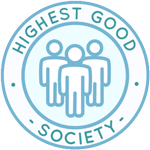 One Community is ecologically addressing housing through a Highest Good society approach to living that is founded on fulfilled living, the study of meeting human needs, Community, and making a difference in the world:
One Community is ecologically addressing housing through a Highest Good society approach to living that is founded on fulfilled living, the study of meeting human needs, Community, and making a difference in the world:
- Read the Highest Good society overview: Highest Good Society
- Learn about the model for fulfilled living and sharing: A Day in the Life
- Learn about the 4 economic models: RBE | For-profit | Non-profit | Entrepreneurship
- Learn about our open source community collaboration and management software: The Highest Good Network
This week the core team completed a thorough review of the David Holmgren video below. David Holmgren is one of the co-creators of Permaculture. We reviewed the video below to extract various quotes we may choose to use throughout the website. We’re also going to create a David Holmgren Quotes webpage with this content so others who may be interested can access and use it too.
Tengxiao Wang (Software Engineer) completed his 5th week working on the Highest Good Network software. This week Tengxiao continued to work on the Timer component. He fixed some layout issues to make the component cleaner and nicer. He also did some research on the MongoDB schema design and started to design RESTful APIs for handling timer requests. You can see some of the results of this work below for ecologically addressing housing.
Henry Ng (React Developer) also completed his 5th week with the team and working on the Highest Good Network software. This week Henry successfully fixed a bug in CircleCI so the other developers can test the app on the web, he also updated all the workflows of the projects management page. Now users can add a new project, change project’s names, change project’s active status and delete projects. You can see screenshots related to this work below towards ecologically addressing housing.

Fixed a Bug in CircleCI So the Other Developers Can Test the App on the Web ” Click for Highest Good Network Page
Siddharth Gore (Senior Software Engineer I) completed his 4th week as a member of the volunteer team also working on the Highest Good Network software. This week Siddharth continued working on the Mobile app for android and ios. He got the Login, Projects, My Profile, LeaderBoard screen and user profile functionality done and tested the app on iphone, ipad and nexus5 phones. You can see some of this work here for ecologically addressing housing.

Continued Working on the Mobile App for Android and Ios ” Click for Highest Good Network Software Page
And last but not least, Simon Xiong (Programmer) joined the team and completed his first week working on the Highest Good Network software also. This week Simon researched Unit Testing to determine what could be implemented as a best practice for the HGN application. Unit Testing is just one of the many testing methodologies (Integration, End to End, etc) available for testing software applications. As it relates to our application and for the sake of simplicity we are going to be using Jest with Enzyme. This week Simon completed and included a summary of Unit Testing, Jest, and a Jest Example. You can see some of this work below towards ecologically addressing housing.
AND WE PRODUCED THIS WEEKLY UPDATES BLOG – CLICK HERE TO SUBSCRIBE
FOLLOW ONE COMMUNITY’S PROGRESS (click icons for our pages)
INVESTOR PAGES
GET INVOLVED
DONATE | WAYS ANYONE CAN HELP | MEMBERSHIP
CLICK HERE FOR ALL PAST UPDATES
ECOLOGICALLY ADDRESSING HOUSING – WHAT ONE COMMUNITY IS CREATING
One Community is creating a place to grow together and change the world together. We are creating a space that helps each other live in integrity with each other and the planet as we strive to be the greatest versions of ourselves. We do this by harmoniously respecting each other, nature, and the rest of our one shared planet and by ecologically addressing housing.
Our goal is to demonstrate what we feel is the most sustainable, healthy, and fun environment we can create. A place based on compassion, kindness, and collaboration. This replicable community will serve as an example for what is possible.
Throughout our design process for ecologically addressing housing model we are open sourcing and free-sharing everything needed for construction and replication. This includes what we call “Highest Good” approaches to food, energy, housing, education, for-profit and non-profit economics design, social architecture, fulfilled living, stewardship practices and more. We are creating these resources for implementation as individual components or complete developments called teacher/demonstration hubs. These hubs will help launch additional hubs as awareness and knowledge grow.
BUILDING THE FIRST OF MANY
One Community will be the first teacher/demonstration hub. It will function as an experiential-learning model that facilitates mass participation to address humanity’s most pressing challenges through: A replicable model for expansion, building seven self-sufficient village/city prototypes, becoming the world leader in open-source sustainability solutions, and evolving and expanding ALL aspects of sustainable living such as ecologically addressing housing.
ECOLOGICALLY ADDRESSING HOUSING – WHY ONE COMMUNITY IS CREATING THIS
The One Community self-replicating model is capable of creating a sustainable planet within 30 years. We will achieve this by establishing successful teacher/demonstration hubs on every continent. Villages include designs appropriate for each of the five main types of climates. They also include options for even the most challenged economies. These hubs will collaborate with one another, share ideas, resources, and work together as a network to heal the planet. They will also transform the global lifestyle to a more enjoyable, fulfilling, healthy, and sustainable one.
The specifics of how One Community is accomplishing this ecologically addressing housing model can be found on the One Community Solution Model to Create Solution-creating Models Page. Research supporting and showing the benefits of a model like this can be found on our Research and Resources Articles Archive.
Even if we don’t achieve our ultimate goal of global transformation, a self-replicating teacher/demonstration model like this will take a relatively short period of time to positively affect millions while inspiring millions more. For One Community residents (the Pioneer Team), the idea of creating and sharing the social and recreational experience with visitors is also fun, exciting, fulfilling, and an additional reason why we are creating this ecologically addressing housing model.
ECOLOGICALLY ADDRESSING HOUSING – WHY OPEN SOURCE
We are creating everything One Community does as open source and free-shared blueprints because we see this ecologically addressing housing model as the path to a new Golden Age of creativity, innovation, cooperation, and collaboration for all of humanity. Our model is a solution model that creates additional solution creating models enabling people to live and collaborate globally for The Highest Good of All. The easier we make everything we do, the faster we see the world transitioning.
Every aspect of this ecologically addressing housing model supports itself and contributes to its success, from the sustainable food, energy, and homes, to the social architecture, One Community Education Program, and open source sharing model itself. Each piece can be accessed, evolved, and even re-birthed as something completely new. It can be duplicated by itself or with other modules, with applications as diverse as the people who want and need them. The constantly expanding total model will additionally be able to be used in its entirety as the open source project-launch blueprint for a variety of duplicate teacher/demonstration communities, villages, and cities capable of being built virtually anywhere.
The most profound part is: the more we open source share, the more we help move everyone forward, the more people know about what we are doing and can participate, and the more successful and capable we are of project-launch blueprinting and sharing even more still. This is all supported and made possible because:
- We have the team to produce an extensive quality and diversity of tools and resources
- It gives us the opportunity to broaden the concept of sustainability and make it more desirable
- Areas we open source expand our ability to evolve even faster through global collaboration
- Each new area open sourced expands our target audience, advancing our world changing goals
- The more we show our ability to share what we are creating, the more others will benefit and want to join this movement and mimic the part we are playing in it
ECOLOGICALLY ADDRESSING HOUSING – SUMMARY
One Community sees the issues of the world as interdependent and interconnected. To address them simultaneously, we are open-source blueprinting a more advanced standard of living by designing holistic, environmentally-regenerative, self-sustaining, adaptable solutions for all areas of sustainability. We will model these within a comprehensive “village/city” which will be built in the southwestern U.S. This teacher/demonstration hub will be a place people can experience a new way of living and then replicate it with our open source blueprints: creating a model solution that creates additional solution-creating models such as the model of ecologically addressing housing.
 One Community
One Community
